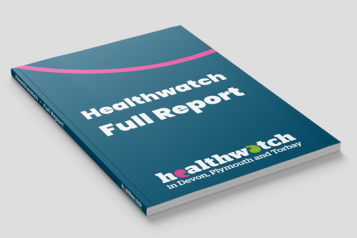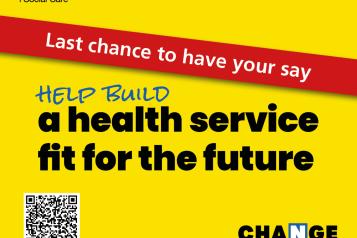Our response to GP Patient Survey 2025

Responding to the results of the GPPS 2025, Lousie Ansari, our Chief Executive, said:
“Primary Care delivers 90% of the interactions people have with the NHS. With public satisfaction in the NHS declining, improvements to how people access care from their GP, pharmacy, dentistry, and other primary care teams is therefore vital.
It’s promising that this year’s findings show modest increases in people’s overall experiences of GP, including an increase in the number of people given a choice of time, day or location for their most recent appointment, which we know from previous years’ results directly links to improvements in overall experience.
However, our recent research shows there is a gap between the choices people want and the ones they get. We’ve called for the GPPS to ask further questions on patient choice in future, to understand where there are choice gaps, inform service improvements, and make sure people can access appointments in a way that works for them."
On accessibility
“This is the first year the survey has asked questions about accessible communication and getting information in way people can understand. Disappointingly, two thirds of those who find it difficult to see, hear, speak, read or understand what is being said to them, also report that they have not been asked how they prefer to be given information or communicate. And 50% didn’t, or didn’t know, whether a record of how they prefer to communicate was made. One in ten never get the help they want to communicate.
"These findings show the urgency of action needed from health services to adhere to new expectations from NHS England that they self-assess how well they adhere to the NHS Accessible Information Standard (AIS) and address gaps in meeting people’s needs. The AIS is underpinned by the Equality Act 10, which requires public bodies to make reasonable adjustments to ensure people with disabilities and other protected characteristics can get healthcare in a fair and equitable way as the rest of the general population.”
Dentistry
“People’s experiences of NHS dentistry services have increased slightly this year to 70.8%. However, almost one in five still report poor experiences, with a similar proportion unable to access an appointment. Over one in four people who haven’t tried to get an NHS dental appointment didn’t think they could, while one in four chose to go private.
“This mirrors the stories people share with us as many continue to struggle access NHS dental appointments or afford dental fees.
“The proposals the Government has recently announced have the potential to ensure more people with the most severe problems get the care they need. However, we need a fundamental reform of NHS dentistry to fix ongoing access issues.”



